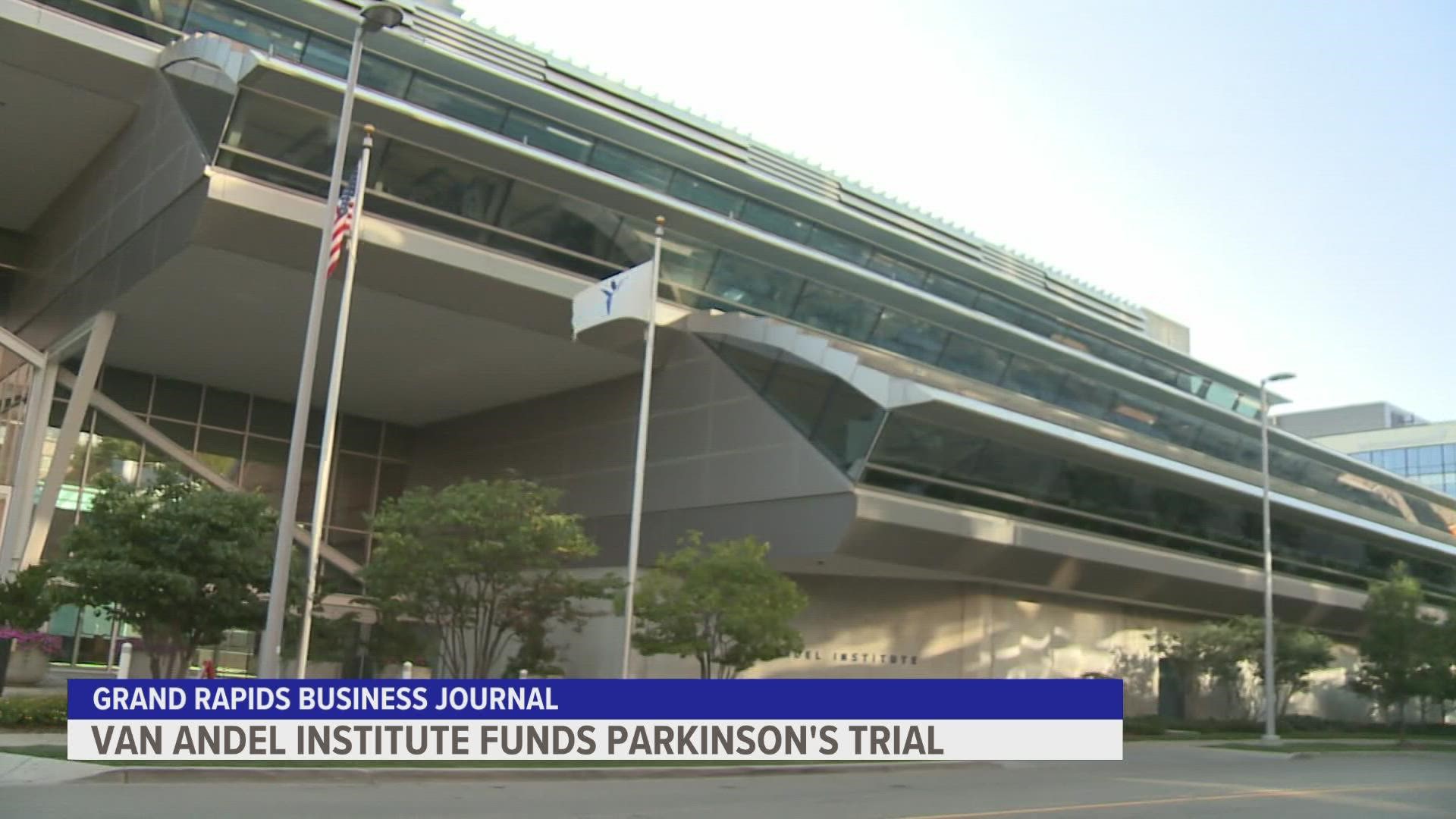GRAND RAPIDS, Mich. — GRBJ—Van Andel Institute is contributing $1.3 million to a $6.6 million U.K. trial to determine the ability of a drug to slow the progress of Parkinson’s disease.
Thanks to a decade of collaboration and support from Grand Rapids’ Van Andel Institute (VAI) scientists, a $6.6 million trial driven by U.K. charity Cure Parkinson’s will investigate the ability of ambroxol to slow the progression of Parkinson’s disease.
Following promising results reported at Phase 2 in 2020, the Phase 3 clinical trial of ambroxol, currently in use to treat respiratory conditions, will start in early 2023. The trial, called the ASPro-PD trial, will involve 330 people with Parkinson’s across 10-12 clinical centers in the U.K.
Ambroxol is one of the drugs prioritized by the International Linked Clinical Trials (iLCT) program, created and operated by Cure Parkinson’s and VAI with the mission to slow, stop and reverse the progression of Parkinson’s.
The medication is commonly used in Europe as a treatment for respiratory diseases. It promotes the clearance of mucus, eases coughing and has anti-inflammatory properties.
According to a statement by Cure Parkinson’s, after reviewing preclinical laboratory data from professor Anthony Schapira at University College London (UCL), a committee of experts brought together by Cure Parkinson’s in 2014 prioritized ambroxol for further investigation. They agreed the drug has the potential to slow or stop the progression of Parkinson’s, based on the demonstration that ambroxol could increase the removal of alpha-synuclein, a protein that builds up in Parkinson’s and is thought to be important in its cause.
Results of the Phase 2 clinical trial were published in January 2020 in The Journal of the American Medical Association (JAMA) Neurology. The data showed ambroxol was able to effectively reach the brain and increase levels of a protein known as GCase (glucocerebrosidase) that allows cells to remove waste proteins, including alpha-synuclein, more effectively.
The Phase 2 trial, which was funded and supported by Cure Parkinson’s, VAI and the John Black Charitable Foundation, showed ambroxol was safe for people with Parkinson’s and was well tolerated.
After eight years of work, the drug is heading into a Phase 3 trial, which will be led again by Schapira at UCL.
“The movement of ambroxol into a Phase 3 clinical trial is a leap forward in our pursuit of treatments that slow or stop Parkinson’s progression,” said Darren Moore, chair of the department of neurodegenerative science at VAI and member of the iLCT committee. “Ambroxol has shown promising
results in a Phase 2 trial, and, because it is a commonly used respiratory medication, it has already gone through rigorous safety testing.
“Very few potential treatments for Parkinson’s have reached Phase 3 trials,” he said, “which makes today’s news that much more exciting. The trial is a testament to the power of collaboration spurred on by the International Linked Clinical Trials initiative.”
The ASPro-PD trial will be placebo controlled, with participants taking the drug or placebo for two years. The effectiveness of ambroxol will be measured by its ability to slow the progression of Parkinson’s using a clinical scale including quality of life and movement. Preparations for recruitment of trial participants have already started.
The ASPro-PD trial will cost researchers approximately $6.6 million and is being funded by Cure Parkinson’s and its partners: Van Andel Institute; the John Black Charitable Foundation; and Parkinson’s Virtual Biotech, the drug discovery and development arm of Parkinson’s U.K.
Cure Parkinson’s is committing to fund approximately $2.6 million of the total cost, with the other funders contributing approximately $1.3 million each.
“For a decade, the International Linked Clinical Trials program has worked tirelessly to move promising potential therapies for Parkinson’s into clinical trials,” said Peter Jones, chief scientific officer at VAI. “Van Andel Institute is thrilled to continue partnering with Cure Parkinson’s on this vital initiative, and we look forward to a bright future in which slowing or stopping disease progression isn’t a dream — it is a reality.”
This report first appeared in the Grand Rapids Business Journal.
►Make it easy to keep up to date with more stories like this. Download the 13 ON YOUR SIDE app now.
Have a news tip? Email news@13onyourside.com, visit our Facebook page or Twitter. Subscribe to our YouTube channel.

